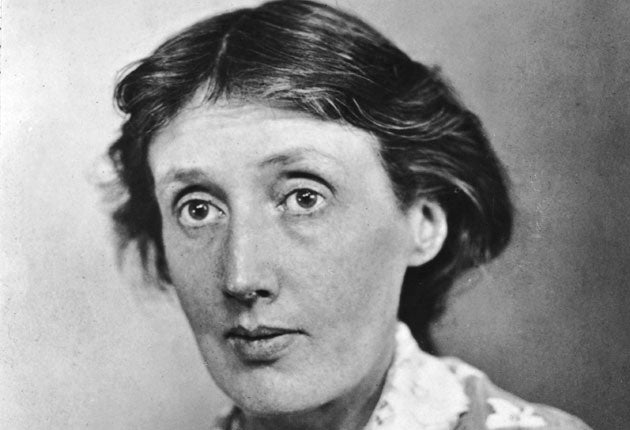Seventy years on, Woolf reveals a new character
There was more to the Bloomsbury novelist than her bohemian lifestyle, it has emerged

As a leading member of the Bloomsbury set, as famous for their bisexual bed-hopping as their creative output, Virginia Woolf could have gone down in history as a bohemian first, a novelist second.
But an in-depth re-examination of her work by leading academics concludes her novels are far more sophisticated than previously thought – with subtle political and classical references woven into the text. It also reveals that Woolf, despite her claim that she had "never been to school", was educated to degree level. Academics are now calling for her to be viewed in the same light as the great modernist writers, such as T S Eliot and James Joyce.
The findings are part of a major research project by Cambridge University Press, helped with funding from the Arts and Humanities Research Council, as part of a reissuing of Woolf's oeuvre to mark the 70th anniversary of her death later this month.
While almost all editions of James Joyce's Ulysses and T S Eliot's poem The Waste Land come with lengthy annotations – in Eliot's case, written by himself – Woolf's novels tend to be read as stand-alone works of fiction. The new editions, to be published by CUP, will offer annotations that shed light on the many hidden references and will map out textual changes, showing how the books evolved between proofs and editions.
The public perception of Woolf has been shaped by an early biography by her nephew Quentin Bell and by Woolf's own comments about her lack of formal education. In fact, she attended lectures at King's College London, in subjects such as history, German, Greek and Latin, and although she never got a degree, there is evidence to suggest she may have sat exams.
Anna Snaith, a reader in 20th-century literature at King's College London, who annotated the CUP edition of The Years, said the new publications would put paid to the idea that Woolf lacked formal further education. "She was a thoroughly committed political writer and a rigorous intellectual. It is astonishing how rigorous she was with her reading and studies," she said.
Born Virginia Stephen into a well-connected literary family, she was largely home-educated, and suffered a series of breakdowns and depressions following the premature deaths of her mother and half-sister, Stella. She married the publisher Leonard Woolf before embarking on a career as a novelist, her best-known books being To the Lighthouse, Mrs Dalloway and A Room of One's Own, a non-fiction essay in feminism.
However, much of the fascination with her revolves around her affair with the writer Vita Sackville-West, the product of an ethos of liberal sexual values among the writers and painters in the social circle centred on Woolf's house in Gordon Square.
Virginia Nicholson, Woolf's great-niece, also a novelist and the daughter of Quentin Bell, welcomes the CUP research project. "I'm very pleased that she should reach a wider readership, whether more or less educated," she says. "It's great that CUP is finding more dimensions to her work. But I hope their claims that she is more literary and complex won't make people think that she is in any way obscure or inaccessible. Although her books are undoubtedly clever, many of them have appeal for being just a jolly good read."
Subscribe to Independent Premium to bookmark this article
Want to bookmark your favourite articles and stories to read or reference later? Start your Independent Premium subscription today.

Join our commenting forum
Join thought-provoking conversations, follow other Independent readers and see their replies